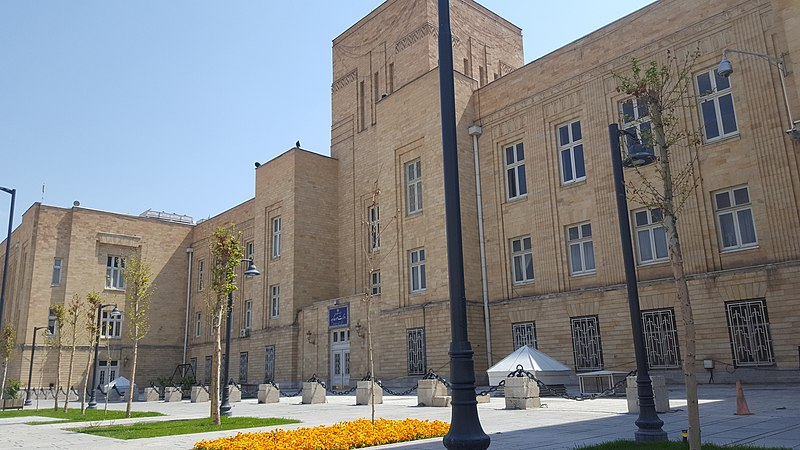After more than a year of indirect negotiations, the possibility of restarting the 2015 nuclear deal between Iran and world powers appears to be expected. This week, Iran rejected the accusations by officials from Europe and the US that its stance on the negotiations was negative.
Iranian foreign ministry spokesperson Nasser Kanani told reporters in Tehran Monday that Iran turned in its comments on the final proposal drafted by the European Union with the aim of achieving a good outcome to the months-long negotiations that started in April last year.
Kanani said Iran had given a constructive response to the United States as part of the indirect discussions.
“We believe Iran’s response has been constructive, transparent, and legal, and can create the grounds for a conclusion of the talks and for an agreement in a short amount of time if there is also mutual political will,” said Kanani. “Either way, lifting sanctions and [providing] economic benefits for the Iranian nation…are among our top goals.”
Last month, the EU’s foreign policy chief Josep Borrell said both Tehran and Washington’s first comments on the bloc’s proposal were “reasonable” but has yet to weigh in on the recent feedback given. Two other signatories of the deal, Russia and China, have backed Iran’s latest comments on the final text that would be the potential agreement.
The United States under Donald Trump unilaterally withdrew from the nuclear agreement, also known as the Joint Comprehensive Plan of Action, in 2018. Instead, the Trump administration imposed sanctions on Iran as part of a “maximum pressure” campaign.
Qatar and Oman have served to relay messages between Iran and the US. Israel, which has staunchly opposed the deal, has also sought to influence the negotiations.
In a conversation between US President Joe Biden and Israeli Prime Minister last week, both leaders assured each other of a joint commitment to prevent Iran from obtaining nuclear weapons amidst the negotiations.
While Iran has denied seeking to obtain nuclear weapons, Israel – who is one of the four countries that are not signatories to the Non-Proliferation Treaty – reportedly has a secret nuclear arsenal.



 Failure of US-Iran talks was all-too predictable – but Trump could still have stuck with diplomacy over strikes
Failure of US-Iran talks was all-too predictable – but Trump could still have stuck with diplomacy over strikes  Argentina Tax Reform 2026: President Javier Milei Pushes Lower Taxes and Structural Changes
Argentina Tax Reform 2026: President Javier Milei Pushes Lower Taxes and Structural Changes  Russia Signals Openness to U.S. Security Guarantees for Ukraine at Geneva Peace Talks
Russia Signals Openness to U.S. Security Guarantees for Ukraine at Geneva Peace Talks  HHS Adds New Members to Vaccine Advisory Panel Amid Legal and Market Uncertainty
HHS Adds New Members to Vaccine Advisory Panel Amid Legal and Market Uncertainty  UK Accepts U.S. Request to Use British Bases for Defensive Strikes on Iranian Missiles
UK Accepts U.S. Request to Use British Bases for Defensive Strikes on Iranian Missiles  Israel Strikes Hezbollah Targets in Lebanon After Missile and Drone Attacks
Israel Strikes Hezbollah Targets in Lebanon After Missile and Drone Attacks  Suspected Drone Strike Hits RAF Akrotiri Base in Cyprus, Causing Limited Damage
Suspected Drone Strike Hits RAF Akrotiri Base in Cyprus, Causing Limited Damage  Trump to Address Nation as U.S. Launches Strikes in Iran, Axios Reports
Trump to Address Nation as U.S. Launches Strikes in Iran, Axios Reports  Trump Announces U.S. Strikes on Iran Navy as Conflict Escalates
Trump Announces U.S. Strikes on Iran Navy as Conflict Escalates  AI is already creeping into election campaigns. NZ’s rules aren’t ready
AI is already creeping into election campaigns. NZ’s rules aren’t ready  Trump Says U.S. Attacks on Iran Will Continue, Warns of More American Casualties
Trump Says U.S. Attacks on Iran Will Continue, Warns of More American Casualties  Australia Rules Out Military Involvement in Iran Conflict as Middle East Tensions Escalate
Australia Rules Out Military Involvement in Iran Conflict as Middle East Tensions Escalate  Israel Declares State of Emergency as Iran Launches Missile Attacks
Israel Declares State of Emergency as Iran Launches Missile Attacks  Why did Iran bomb Dubai? A Middle East expert explains the regional alliances at play
Why did Iran bomb Dubai? A Middle East expert explains the regional alliances at play  Trump Says U.S. Combat Operations in Iran Will Continue Until Objectives Are Met
Trump Says U.S. Combat Operations in Iran Will Continue Until Objectives Are Met  Zelenskiy Urges Change in Iran After U.S. and Israeli Strikes, Cites Drone Support for Russia
Zelenskiy Urges Change in Iran After U.S. and Israeli Strikes, Cites Drone Support for Russia 































